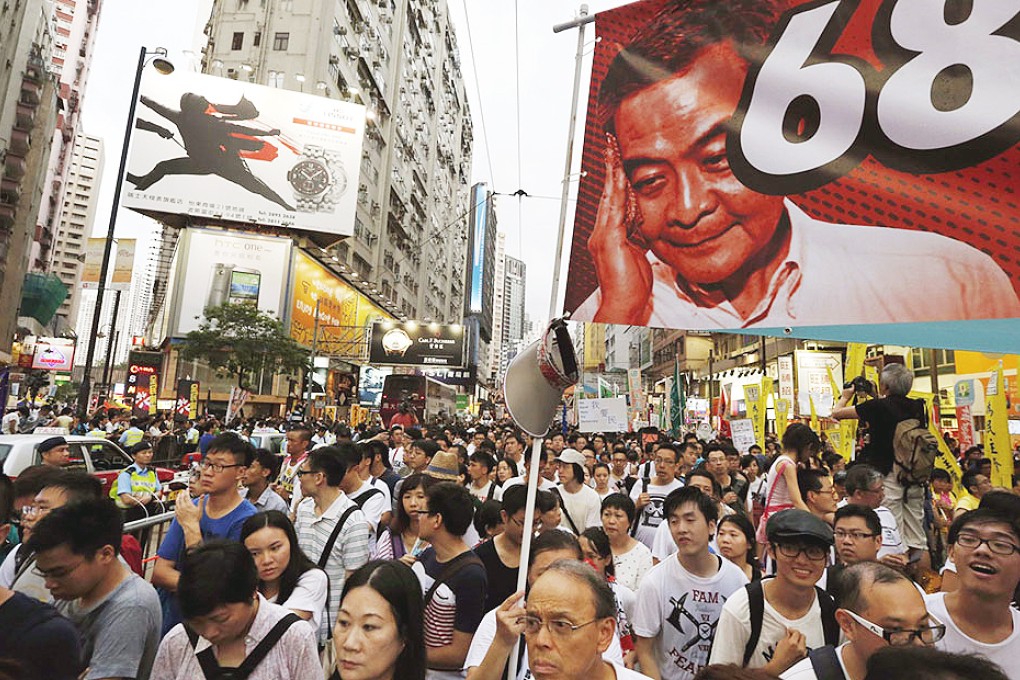Most marchers surveyed motivated by desire for public nomination of 2017 poll candidates
Protesters motivated by desire for public nomination of 2017 election candidates and opposition to recent Beijing white paper, poll shows

An overwhelming 91 per cent of marchers polled by the South China Morning Post yesterday stood firm on the public's right to nominate candidates to run in the next chief executive election.
A fifth also said they were prepared to join Occupy Central, while 36 per cent rejected the civil disobedience movement that will be launched if the government's proposals for electoral reform fall short of "international standards" for universal suffrage. Another 43 per cent were unsure.
Fifty-two per cent of the 823 respondents said they would rather retain a limited election for the top job than have a vote themselves if the nomination methods were unsatisfactory.
This despite officials' repeated calls for lawmakers to accept one man, one vote even if the nomination method is not as good as they want. Two-thirds of lawmakers, including some pan-democrats, will need to support whatever electoral reform proposal the government puts forward for it to pass.
Respondents were asked to give a maximum of two reasons for participating in the march. The reasons they could choose were: the desire for an election open to all; expressing discontent over the State Council's white paper; discontent with the local government; a desire to hit back at critics of last month's unofficial plebiscite on political reform; and any other reasons.
Among the options, fighting to elect the chief executive by universal suffrage in 2017 with no screening was cited by more respondents than any other - a total of 522, or 65 per cent.